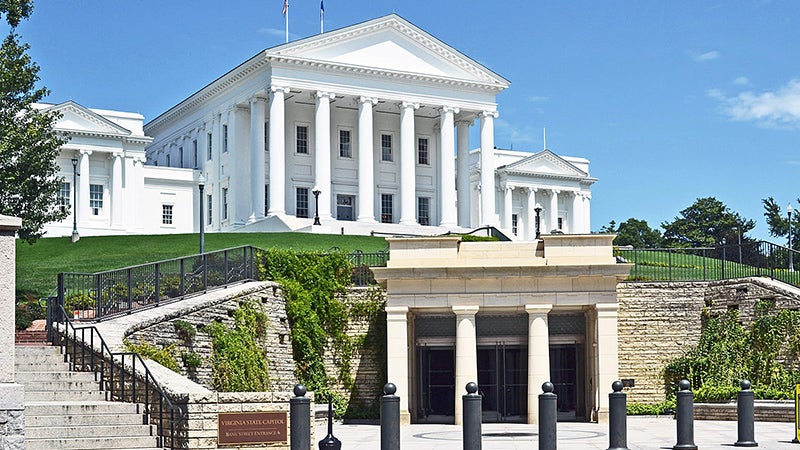Some lawmakers want to bring medicinal psilocybin to Virginia
Published 5:35 pm Friday, February 17, 2023
|
Getting your Trinity Audio player ready...
|
By Chloe Watson
Capital News Service
Veterans’ testimony on the health benefits of psychedelic mushrooms did not convince House lawmakers to advance a bill allowing doctors to prescribe it — although the Senate agreed to create an advisory board to study such treatment.
Psilocybin is a chemical obtained from certain types of fresh or dried mushrooms, and sometimes referred to as magic mushrooms for its psychedelic effects.
Del. Dawn Adams, D-Richmond, introduced House Bill 1513, to allow doctors to prescribe some patients psilocybin, while also lowering the punishment for possession without a prescription. The bill is effectively dead for the session since it was not advanced out of a subcommittee.
Sen. Ghazala Hashmi, D-Richmond, introduced Senate Bill 932, to create a Virginia Psilocybin Advisory Board. The proposal also reclassifies psilocybin under the Drug Control Act from a schedule I drug like heroin or LSD, to a schedule III drug like testosterone. That would reduce the charge for illegal possession.
Hashmi’s bill passed the Senate with some Republican support and heads to the House for consideration.
“This will be a board that would help us to develop a long-term plan for thinking about how to provide psilocybin to individuals who could benefit from the treatment as a therapeutic option, primarily to address issues of PTSD and depression,” Hashmi said.
Hashmi didn’t always support the decriminalization of psilocybin, she said. She began to see its medical value after hearing testimony on how the drug has transformed lives, particularly in individuals with treatment-resistant mental illness, she said.
Access to therapeutic psilocybin has increased in the United States. Oregon became the first state to decriminalize it in 2020 and Colorado followed in 2022. Washington, D.C. voters also approved an initiative to decriminalize psilocybin in 2020. The Maryland legislature unanimously approved a Senate bill last year to create a fund to help veterans access psilocybin, ketamine and MDMA for post traumatic stress disorder and traumatic brain injury alternatives. State lawmakers in Iowa, Missouri, New Hampshire and Utah introduced psilocybin bills this year that would decriminalize, approve for study, or change the drug scheduling.
These trends are due to new research on the effectiveness of natural medicine, including research from Johns Hopkins, according to Hashmi. The Food and Drug Administration granted “breakthrough therapy designation” in 2018 to COMPASS Pathways mental health care company to research psilocybin. The initial phase of the peer-reviewed study yielded “positive results” that have been published in health journals.
Hashmi’s team modeled the proposed advisory board after Oregon’s, she said.
The board would report to the General Assembly annually on Dec. 1. It would consist of a panel of 12 Virginia citizens, ranging from physical and mental health officials, researchers and mycologists — mushroom experts.
A representative from the Department of Veterans Services would also serve on the board. Many veterans have advocated for therapeutic psilocybin as a means to treat their often treatment-resistant PTSD, according to Hashmi and multiple news reports.
Two veterans, as well as a neuropharmacologist, testified to the Courts of Justice subcommittee panel in support of Adam’s bill. They praised psilocybin for its breakthrough effects, as well as its nonaddictiveness and lack of physical side effects. Its nonaddictiveness is seen as an important trait given the widespread opioid epidemic, something Hashmi acknowledged as well.
Veteran Wyly Gray runs the nonprofit Veterans of War. He testified to the panel in support of Adam’s bill. Gray travels to foreign countries with veterans to provide them with psilocybin medicine that he believes should be available in the U.S., according to Gray. The bill is a way to ensure veterans are not punished for trying to get life-changing help, he said.
“One of my veterans ended up going to jail two years ago before being a part of my program for the very reason that we’re trying to prevent today, which is to try and heal themselves and not be another statistic,” Gray said. “Another one of the more than 7,000 veterans that commit suicide every year.”
There is “an absolute epidemic” of mental health care emergencies in the nation, he said.
“Many of these mental health care crises can be mitigated simply by having access to the flora and fauna that grow here in the commonwealth,” Gray said.
Both lawmakers introduced similar bills in the 2022 General Assembly session.
Hashmi is uncertain how the bill may fare in the House of Delegates, but said her team will continue to advocate for the bill.
Capital News Service is a program of Virginia Commonwealth University’s Robertson School of Media and Culture. Students in the program provide state government coverage for a variety of media outlets in Virginia.







